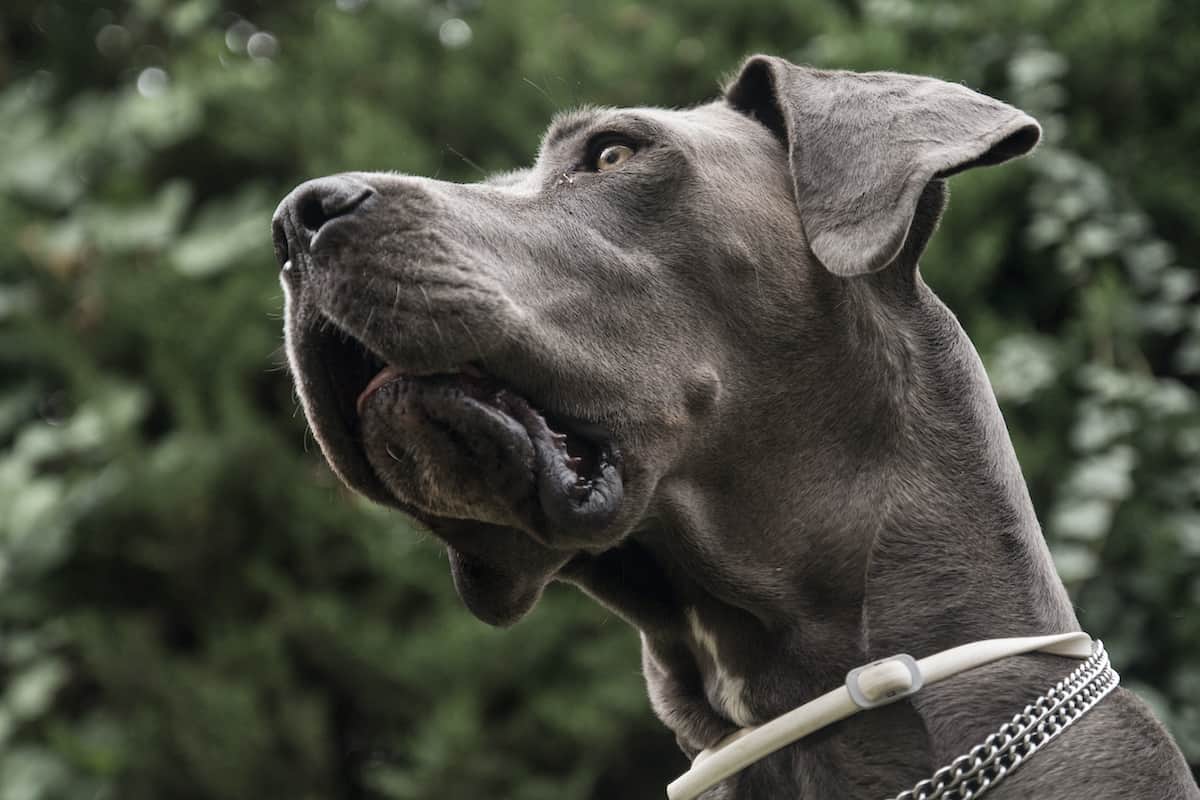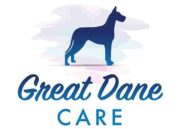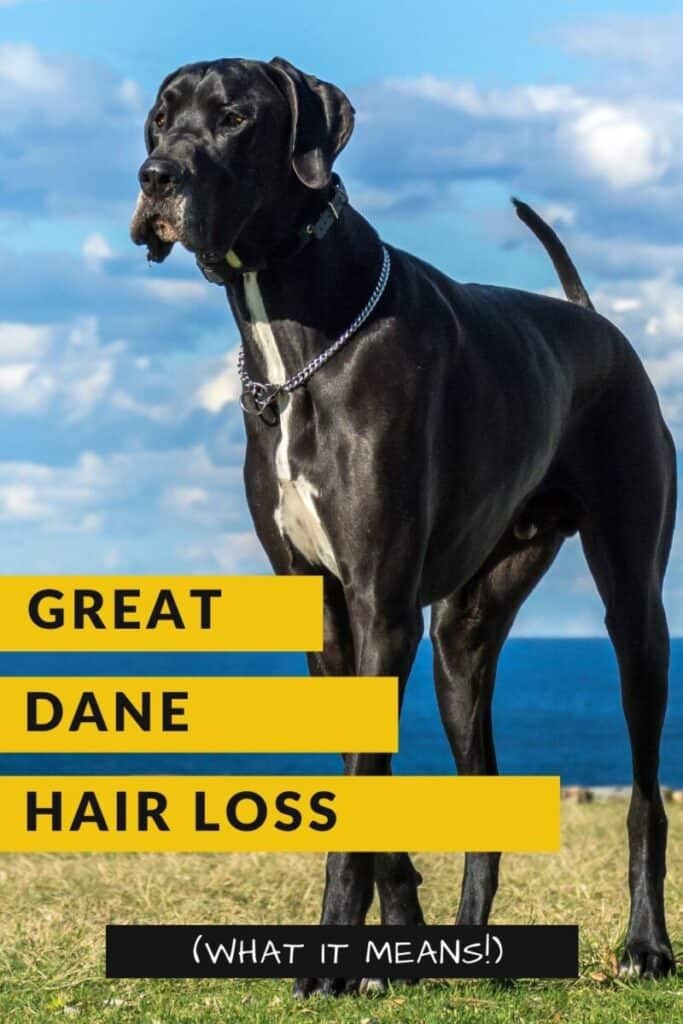
Uncover the causes and solutions for Great Dane hair loss with our focused guide, designed to help you address this common concern and maintain your dog’s majestic coat.
While shedding may be perfectly normal, there are also other reasons that your Great Dane may be experiencing abnormal hair loss.
The most common reasons that Great Danes experience hair loss include:
- Parasites
- Medical issues
- Allergies
- Skin infection
- Dry skin
- Nutritional deficiency
While there is no miracle cure to stop your dog from shedding, there are many things that you can do to help decrease the amount of hair that they shed.
Of course, we also want to make sure that any medically-driven reasons for abnormal hair loss are addressed to ensure your Great Dane’s long-term health!
1. Parasites
Fleas and Ticks
Some parasites cause your Great Dane to be itchy and lose hair. Common parasites that can be seen on your Great Dane to cause them to lose hair are fleas and ticks.
Some Great Danes can be very allergic to the salvia in fleas, and just one bite from these can cause them to be very itchy. When they scratch, they will damage the hair follicle and cause their hair to fall out.
The good news is that these types of parasites are usually visible to the eye, so you can quickly determine if this is indeed the case.
If not your vet can help you diagnose a parasite infection in your Great Dane. They can prescribe your Great Dane the Right medication to get rid of these parasites.
Mites
Mites like Demodex or Mange can cause your Great Dane to lose hair and be very itchy.
Mites are microscopic and can bury deep into your Great Dane’s hair follicles. This causes them to be very hard to find and treat.
Your vet will take a small scraping of your Great Dane’s skin and look at it under the microscope. Unfortunately, this is the only way to find out if mites are indeed present.
If your Great Dane does have mites, there are specific medications that your vet can give to your Great Dane to kill these mites. Some mites can even be transferred to you from your Great Dane.
2. Medical Issues
Hormone imbalances like hypothyroidism, adrenal gland disorders, or growth hormone disorders can cause your Great Dane to lose their hair. Some Great Danes may lose hair after they are neutered because of a decrease in testosterone.
Diseases such as liver and kidney disease and cancer can cause unexplained hair loss in your Great Dane. If your Great Dane has just suddenly started to lose their hair, they should see your vet.
Your vet may suspect that your Great Dane has an internal problem as a causing them to lose hair. They may run bloodwork and take X-rays or ultrasounds to help determine the source of hair loss.
3. Allergies
Some Great Dane has allergies to certain things such as food, grass, mold, and pollen. These will cause your Great Dane to be very itchy and loose hair.
You may even notice that your Great Dane’s skin red or has a bad odder. Allergies can be easily treated with an antihistamine such as Benadryl. The typical dosage is 1mg/pound.
For example, a 100-pound Great Dane would need four adult Benadryl tablets twice a day.
Many times, allergies cause your dog to itch, and they develop a secondary skin infection that will need your antibiotics from your vet.
4. Skin Infection
Bacteria and yeast are found under normal conditions on your Great Dane’s skin. However, when these get out of control it can lead to skin infections.
Bacterial, fungal, or yeast infections on your Great Dane’s skin will cause hair loss, redness, itching, and odor.
These bacterial infections can even cause pimple-like pustules to form.
Great Danes can also get ringworm. This would be rare unless you have recently adopted a young kitten. Ringworm is not a worm but a fungus that causes hair loss and small areas of infection.
Ringworm causes red, itchy, or scaly patches on your Great Dane. Your vet will examine your Great Dane, perform certain tests and prescribe antibiotics or antifungals to treat your Great Dane’s skin infection.
5. Dry Skin
Your Great Dane may have hair loss because they have dry skin. There are certain things that can make your Great Dane have dry skin, such as the weather. When it is dry outside, your Great Dane may suffer from dry skin.
Your Great Dane may not be getting the proper amount of fatty acids in their diet. You can easily add fatty acids to your Great Dane’s diet to help with their dry and flaky skin.
Even using a conditioning shampoo will help your Great Dane have a nice shiny coat.
6. Nutritional Deficiency
Hair loss in Great Dane can occur due to a nutritional deficiency. The food that your Great Dane eats will determine the healthy development of your dog and the health of their skin and fur.
Go figure!
Keratin is a core component of hair. Biotin is a need nutrient in supporting healthy skin and hair. This also helps protect against hair loss.
Your Great Dane’s hair needs the proper amino acids to be synthesized for a nice and shiny coat. Without these amino acids, your Great Dane will have slow hair growth.
Their hair will be brittle, and eventually, will suffer from hair loss.
7. Miscellaneous Issues
There are other things that cause excessive shedding in your Great Dane. Some of these may include:
- Stress
- Poor nutrition
- Pregnancy
- Lactation
- Another underlying medical condition
If you think your Great Dane is shedding more than usual or if they are developing bald spots, it is best to make an appointment with your vet.
The treatment they prescribe for your Great Dane will depend on what is causing their hair loss and any other health problems that they may have.
8. Normal Shedding
If you’re relatively new to Great Danes then you may also want to consider what is considered “normal” hair loss for your dog.
While most Great Danes shed a little more than usual during early spring and fall, it takes time to understand exactly how much yours will shed. Like us humans, this can vary from dog to dog!
What you think is extreme hair loss may just be normal shedding. Most Great Danes shed will shed a little more during the early spring and fall.
Your Great Dane will lose their hair when the individual hairs become old or damaged. They also lose more hair seasonally when the weather turns warm.
Some dogs will shed a lot year-round. Some breeds such as Labs and Husky’s will grow thick undercoats in the winter that they shed in the spring.
Seasonal shedding does not happen if you live in a moderate climate. If your dog’s shedding is out of control, brushing your Great Dane a couple of extra times a week can remove extra hair.
How to treat my Great Dane for Hair Loss
There are many different treatment options for hair loss in great Danes. The treatment will all depend on what is causing your Great Dane to lose their hair.
Some of the treatments that you vet may prescribe include:
- Allergy medications: If your Great Dane suffers from seasonal allergies, certain medications such as Benadryl or Zyrtec may be used. These medications will decrease the allergic response in your Great Dane.
- Flea and Tick prevention: If your Great Dane has fleas or tick, your vet will start them on flea and tick prevention.
- Omega Fatty Acid Supplements: Omega 3 fatty acids are a supplement for helping repair the skin barrier. These supplements are given daily to help with itching. Omega Fatty Acid supplements (link to a good option here) are great at helping make your Great Danes skin, and fur is healthy and shiny.
- CBD oil: CBD or cannabidiol is a great supplement to give to your Great Dane with skin problems. CBD has been shown to help repair the natural skin barrier. If your Great Dane is itching and causing damage to the skin, CBD oil can also help with any pain or inflammation from your pet itching themselves. Once excellent option is that from King Kanine CBD (full review here).
- Changing their Diet: Great Dane can be allergic to their food, making the itch and lose hair. Your Great Dane may need a special diet to help with their itching. They will need to switch to a protein that they have never eaten before, such as rabbit, venison, or duck. Many limited food diets are a great choice for a Great Dane with food allergies.
- Medicated Shampoos: If your Great Dane has a skin infection causing them to lose hair, your dog may need a special shampoo. A medicated shampoo has antifungals and antibiotics in them to help treat your Great Dane’s skin infection.
Working with your veterinarian, you can figure out why your Great Dane is losing their hair. Many times, this can be a very easy fix, and sometimes it can be a lifelong battle of maintenance therapy that your Great Dane will need.
Final Thoughts On Hair Loss
If your Great Dane has started to lose their hair, do not worry.
This can usually be easily fixed.
Once you figure out what is causing your Great Dane to lose their hair, you can quickly and easily start your Great Dane on medications, supplements, and shampoos to help their hair return to a normal healthy, and shiny coat.


Thank you
I have a Gus (Gustavus) (Grey)
He is a Russian Great Dane came from Russia at 7mths
I got home when he was 4 now 10 1/2
Has skin allergies
I also have too big babies
Black one (Viper)
Mantle ( Phoenix)
The pair I got from a breeder l took because they cannot be separated
They are now 16 months now
Hello, we have a 1yr old great dane called Luna, living in the Netherlands.
She is a blue dane and has very sensitive skin, she gets acne on her face which we have now got just about under control and she is prone to ear infections. We have noticed in the summer she gets hives as a reaction but we dont know 100% what to.. so all in all a sensitive girl!
Recently she has had sudden hair loss along her back, the vet has given her a medicated shampoo and antibiotics (however, this seems to be the go to for the vets for everything!) they didnt offer any long term advice to hopefully manage her skin problems longer term.
Do you have advice for what foods may be best for a dog with sensitive skin? we give omega 3 and supplements and a high quality food so far..
Thank you in advance for you advice,
Terri